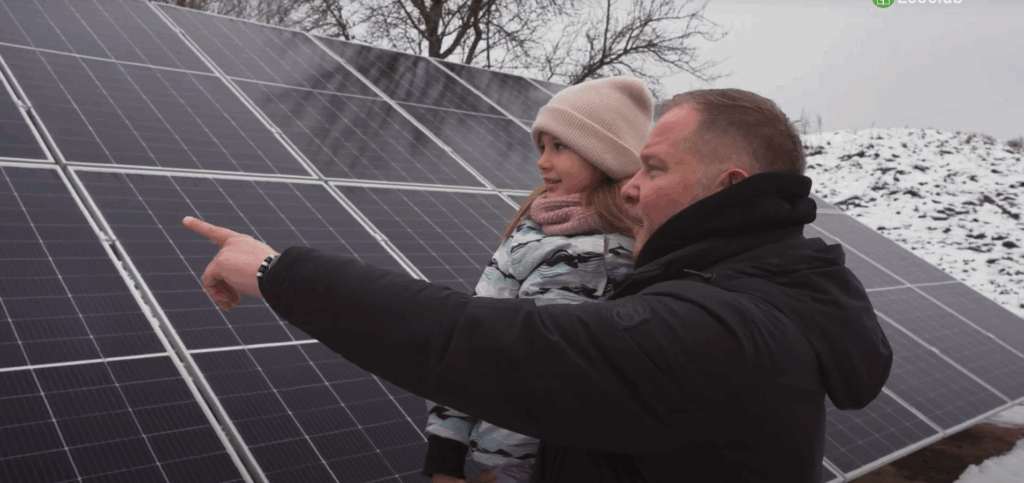Funded by the German Federal Government and the International Climate Initiative (IKI), the “Renewable Energy Solutions (RES)” Programme is set-up as a grant agreement between the Government of Ukraine and the European Investment Bank (EIB). Jointly implemented by the Deutsche Gesellschaft für Internationale Zusammenarbeit (GIZ) GmbH and United Nations Development Programme (UNDP) — acting as the Procurement Agent on behalf of the Ministry for Communities and Territories Development of Ukraine, it aims to support decentralised expansion of renewable energy in Ukraine on critical infrastructure. The Programme is part of Ukraine’s broader green recovery goals and aims to strengthen energy independence and community resilience amid the ongoing war.
The total budget of the programme is EUR 20,000,000. Within this project, GIZ implements a programme with a budget of EUR 3,000,000, led by Elise Vigier.
Key features
3 goals
— Selected municipalities are equipped with investment-ready project design documentation for renewable energy systems on critical public infrastructure, laying the groundwork for further financing and implementation.
— Through targeted training and mentoring, municipal staff develop the skills and institutional capabilities necessary to oversee and maintain renewable energy infrastructure.
— Through one pilot project, a strategic roadmap empowers public institutions to transition into active consumers by connecting to the grid and feeding in excess clean energy.
2 target groups
RES Programme will focus on critical public buildings (schools and hospitals) across Ukraine, where renewable energy solutions will enable key services to function during blackouts, thereby improving communities’ resilience.
Envisioned impact
— Small-scale decentralised renewable energy measures on public critical objects become a powerful solution for municipalities’ energy supply strategy.
— Schools and hospitals increase their energy security during blackouts.
— RES contributes to strengthening Ukraine’s energy independence, stability, and resilience in a climate friendly manner, on its way to the EU integration.
— Communities have been empowered through targeted support to build their knowledge and skills needed to design, manage, and drive forward renewable energy projects.
